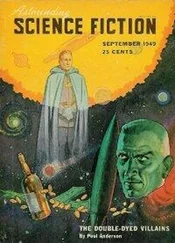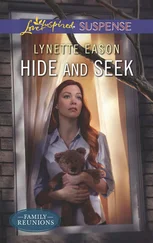Уилки Коллинз - Hide and Seek
Здесь есть возможность читать онлайн «Уилки Коллинз - Hide and Seek» весь текст электронной книги совершенно бесплатно (целиком полную версию без сокращений). В некоторых случаях можно слушать аудио, скачать через торрент в формате fb2 и присутствует краткое содержание. Год выпуска: 2005, Жанр: Классическая проза, на английском языке. Описание произведения, (предисловие) а так же отзывы посетителей доступны на портале библиотеки ЛибКат.
- Название:Hide and Seek
- Автор:
- Жанр:
- Год:2005
- ISBN:нет данных
- Рейтинг книги:5 / 5. Голосов: 1
-
Избранное:Добавить в избранное
- Отзывы:
-
Ваша оценка:
- 100
- 1
- 2
- 3
- 4
- 5
Hide and Seek: краткое содержание, описание и аннотация
Предлагаем к чтению аннотацию, описание, краткое содержание или предисловие (зависит от того, что написал сам автор книги «Hide and Seek»). Если вы не нашли необходимую информацию о книге — напишите в комментариях, мы постараемся отыскать её.
Hide and Seek — читать онлайн бесплатно полную книгу (весь текст) целиком
Ниже представлен текст книги, разбитый по страницам. Система сохранения места последней прочитанной страницы, позволяет с удобством читать онлайн бесплатно книгу «Hide and Seek», без необходимости каждый раз заново искать на чём Вы остановились. Поставьте закладку, и сможете в любой момент перейти на страницу, на которой закончили чтение.
Интервал:
Закладка:
She went away, sadly murmuring these last words many times over, while Valentine was trying to cheer and reassure her, as they walked together to the outer gate. Doctor Joyce accompanied them down the front-garden path, and exacted from her a promise to return often to the Rectory, while the circus was at Rubbleford; saying also that he and his family desired her to look on them always as her fast and firm friends in any emergency. Valentine entreated her, over and over again, to remember the terms of their agreement, and to come and judge for herself of the child’s happiness in her new home. She only answered “Don’t forget the letter, sir!” And so they parted.
Early the next morning, Mr. Blyth and little Mary left the Rectory, and started for London by the first coach.
CHAPTER VII.
MADONNA IN HER NEW HOME.
The result of Mr. Blyth’s Adventure in the traveling Circus, and of the events which followed it, was that little Mary at once became a member of the painter’s family, and grew up happily, in her new home, into the young lady who was called “Madonna” by Valentine, by his wife, and by all intimate friends who were in the habit of frequenting the house.
Mr. Blyth’s first proceeding, after he had brought the little girl home with him, was to take her to the most eminent aural surgeon of the day. He did this, not in the hope of any curative result following the medical examination, but as a first duty which he thought he owed to her, now that she was under his sole charge. The surgeon was deeply interested in the case; but, after giving it the most careful attention, he declared that it was hopeless. Her sense of hearing, he said, was entirely gone; but her faculty of speech, although it had been totally disused (as Mrs. Peckover had stated) for more than two years past, might, he thought, be imperfectly regained, at some future time, if a tedious, painful, and uncertain process of education were resorted to, under the direction of an experienced teacher of the deaf and dumb. The child, however, had such a horror of this resource being tried, when it was communicated to her, that Mr. Blyth instinctively followed Mrs. Peckover’s example, and consulted the little creature’s feelings, by allowing her in this particular—and indeed in most others—to remain perfectly happy and contented in her own way.
The first influence which reconciled her almost immediately to her new life, was the influence of Mrs. Blyth. The perfect gentleness and patience with which the painter’s wife bore her incurable malady, seemed to impress the child in a very remarkable manner from the first. The sight of that frail, wasted life, which they told her, by writing, had been shut up so long in the same room, and had been condemned to the same weary inaction for so many years past, struck at once to Mary’s heart and filled her with one of those new and mysterious sensations which mark epochs in the growth of a child’s moral nature. Nor did these first impressions ever alter. When years had passed away, and when Mary, being “little” Mary no longer, possessed those marked characteristics of feature and expression which gained for her the name of “Madonna,” she still preserved all her child’s feeling for the painter’s wife. However playful her manner might often be with Valentine, it invariably changed when she was in Mrs. Blyth’s presence; always displaying, at such times, the same anxious tenderness, the same artless admiration, and the same watchful and loving sympathy. There was something secret and superstitious in the girl’s fondness for Mrs. Blyth. She appeared unwilling to let others know what this affection really was in all its depth and fullness: it seemed to be intuitively preserved by her in the most sacred privacy of her own heart, as if the feeling had been part of her religion, or rather as if it had been a religion in itself.
Her love for her new mother, which testified itself thus strongly and sincerely, was returned by that mother with equal fervor. From the day when little Mary first appeared at her bedside, Mrs. Blyth felt, to use her own expression, as if a new strength had been given her to enjoy her new happiness. Brighter hopes, better health, calmer resignation, and purer peace seemed to follow the child’s footsteps and be always inherent in her very presence, as she moved to and fro in the sick room. All the little difficulties of communicating with her and teaching her, which her misfortune rendered inevitable, and which might sometime have been felt as tedious by others, were so many distinct sources of happiness, so many exquisite occupations of once-weary time to Mrs. Blyth. All the friends of the family declared that the child had succeeded where doctors, and medicines, and luxuries, and the sufferer’s own courageous resignation had hitherto failed—for she had succeeded in endowing Mrs. Blyth with a new life. And they were right. A fresh object for the affections of the heart and the thoughts of the mind, is a fresh life for every feeling and thinking human being, in sickness even as well as in health.
In this sense, indeed, the child brought fresh life with her to all who lived in her new home—to the servants, as well as to the master and mistress. The cloud had rarely found its way into that happy dwelling in former days: now the sunshine seemed fixed there for ever. No more beautiful and touching proof of what the heroism of patient dispositions and loving hearts can do towards guiding human existence, unconquered and unsullied, through its hardest trials, could be found anywhere than was presented by the aspect of the painter’s household. Here were two chief members of one little family circle, afflicted by such incurable bodily calamity as it falls to the lot of but few human beings to suffer—yet here were no sighs, no tears, no vain repinings with each new morning, no gloomy thoughts to set woe and terror watching by the pillow at night. In this homely sphere, life, even in its frailest aspects, was still greater than its greatest trials; strong to conquer by virtue of its own innocence and purity, its simple unworldly aspirations, its self-sacrificing devotion to the happiness and the anxieties of others.
As the course of her education proceeded, many striking peculiarities became developed in Madonna’s disposition, which seemed to be all more or less produced by the necessary influence of her affliction on the formation of her character. The social isolation to which that affliction condemned her, the solitude of thought and feeling into which it forced her, tended from an early period to make her mind remarkably self-reliant, for so young a girl. Her first impression of strangers seemed invariably to decide her opinion of them at once and for ever. She liked or disliked people heartily; estimating them apparently from considerations entirely irrespective of age, or sex, or personal appearance. Sometimes, the very person who was thought certain to attract her, proved to be absolutely repulsive to her—sometimes, people, who, in Mr. Blyth’s opinion, were sure to be unwelcome visitors to Madonna, turned out, incomprehensibly, to be people whom she took a violent liking to directly. She always betrayed her pleasure or uneasiness in the society of others with the most diverting candor—showing the extremest anxiety to conciliate and attract those whom she liked; running away and hiding herself like a child, from those whom she disliked. There were some unhappy people, in this latter class, whom no persuasion could ever induce her to see a second time.
She could never give any satisfactory account of how she proceeded in forming her opinions of others. The only visible means of arriving at them, which her deafness and dumbness permitted her to use, consisted simply in examination of a stranger’s manner, expression, and play of features at a first interview. This process, however, seemed always amply sufficient for her; and in more than one instance events proved that her judgment had not been misled by it. Her affliction had tended, indeed, to sharpen her faculties of observation and her powers of analysis to such a remarkable degree, that she often guessed the general tenor of a conversation quite correctly, merely by watching the minute varieties of expression and gesture in the persons speaking—fixing her attention always with especial intentness on the changeful and rapid motions of their lips.
Читать дальшеИнтервал:
Закладка:
Похожие книги на «Hide and Seek»
Представляем Вашему вниманию похожие книги на «Hide and Seek» списком для выбора. Мы отобрали схожую по названию и смыслу литературу в надежде предоставить читателям больше вариантов отыскать новые, интересные, ещё непрочитанные произведения.
Обсуждение, отзывы о книге «Hide and Seek» и просто собственные мнения читателей. Оставьте ваши комментарии, напишите, что Вы думаете о произведении, его смысле или главных героях. Укажите что конкретно понравилось, а что нет, и почему Вы так считаете.











